The average cost of Anterior Cruciate Ligament (ACL) Reconstruction in Israel starts from ILS 45600 (USD 12000)
A weight-bearing joint, Knee Joint is one of the most important joints in the body. Its stability is dependent on four ligaments. The four ligaments are anterior and posterior cruciate ligaments as well as medial and lateral collateral ligaments. The Anterior Cruciate Ligament (ACL) is an important one among them. This ligament connects the thigh bone with the shin bone. A few weeks should be given between any injury and the ACL surgery. This helps in the swelling and the pain to reduce, and for you to regain mobility, strengthen your leg muscles. This surgery usually takes only up to a couple of hours and 2-3 hours in the recovery room. You must follow the post-surgery instructions of your orthopaedic surgeon to ensure complete recovery. The first rehab phase takes 1 to 2 weeks, the second rehab phase takes 2-6 weeks, the third rehab phase takes 6-12 weeks, the fourth rehab phase takes 3-6 months, the fifth takes 6-9 months, and then the last rehab phase after 9 months. You need to be regularly in touch with and work with your physiotherapist on your recovery journey.
ACL Surgery in Israel is a very technologically advanced procedure. It is carried out by doctors with a lot of expertise and vast domain experience. This surgery is routinely done in Israeli hospitals equipped with the best of surgical instruments. Some of the good hospitals where you can choose to get ACL Surgery in Israel are, Herzliya Medical Center, Herzliya Yohan Amsellem Osteopath Tel-Aviv, Tel Aviv Assuta Hospital, Tel Aviv Hadassah Medical Center, Jerusalem Yitzhak Shamir Medical Center, Tzrifin Tel Aviv Sourasky Medical Center (Ichilov Medical Center), Tel Aviv
ACL Surgery Cost in Israel is US$ 3500 to US$ 10,000 which is US$ 13, 000 to US$ 17, 000.
| Country | Cost | Local_currency |
|---|---|---|
| Czechia | USD 5090 | Czechia 115492 |
| Greece | USD 5190 | Greece 4775 |
| Hungary | USD 3270 | Hungary 1139791 |
| India | USD 3000 | India 249450 |
| Israel | USD 12000 | Israel 45600 |
| Lithuania | USD 4110 | Lithuania 3781 |
| Malaysia | USD 7500 | Malaysia 35325 |
| Poland | USD 3130 | Poland 12645 |
| South Korea | USD 15000 | South Korea 20140350 |
| Spain | USD 16050 | Spain 14766 |
| Thailand | USD 8060 | Thailand 287339 |
| Tunisia | USD 7500 | Tunisia 23325 |
| Turkey | USD 5000 | Turkey 150700 |
| United Arab Emirates | USD 10100 | United Arab Emirates 37067 |
| United Kingdom | USD 7090 | United Kingdom 5601 |
Treatment cost
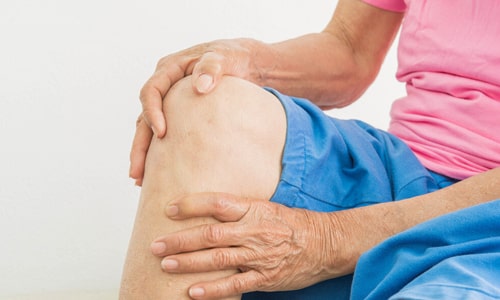
Some of the key inclusions which we provide as additional benefits of the package are:
With us, you are sure to receive all the benefits at competitive prices which is a better choice than paying actual hospital costs.
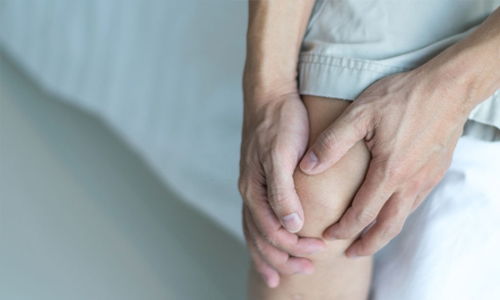
MediGence is offering immense facilities for your medical journey such as:
With us, you are sure to receive all the benefits at competitive prices which is a better choice than paying actual hospital costs.
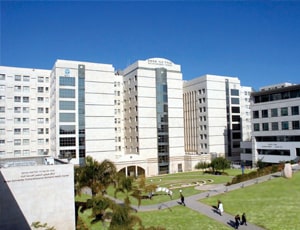
Rabin Medical Center located in Petah Tikva, Israel is accredited by JCI. Also listed below are some of the most prominent infrastructural details:
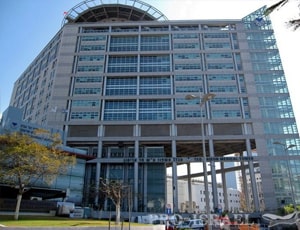
Tel Aviv Sourasky Medical Center -Ichilov Hospital located in Tel-Aviv, Israel is accredited by JCI. Also listed below are some of the most prominent infrastructural details:
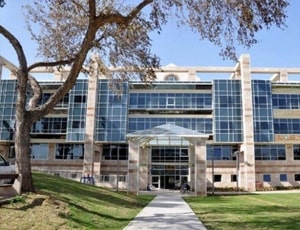
Kaplan Medical Centre located in Rehovot, Israel is accredited by JCI. Also listed below are some of the most prominent infrastructural details:

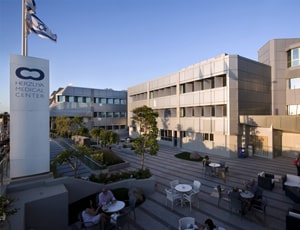
Apart from in-detail treatment procedures available, Herzliya Medical Center located in Herzliya, Israel has a wide variety of facilities available for International Patients. Some of the facilities which are provided by them are Accommodation, Airport Transfer, Interpreter, SIM, TV inside room. Also listed below are some of the most prominent infrastructural details:
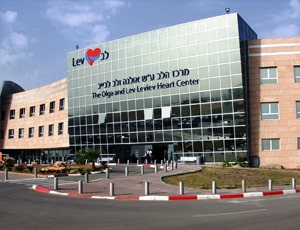
Sheba Medical Center located in Tel-Hashomer, Israel is accredited by JCI. Also listed below are some of the most prominent infrastructural details:
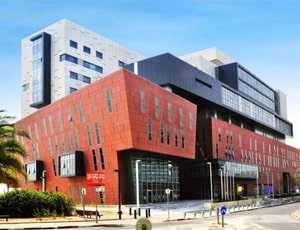
Assuta Hospital located in Tel-Aviv, Israel is accredited by JCI. Also listed below are some of the most prominent infrastructural details:
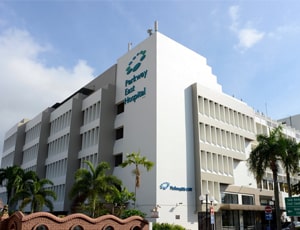
Parkway East Hospital located in Joo Chiat Pl, Singapore is accredited by JCI. Also listed below are some of the most prominent infrastructural details:
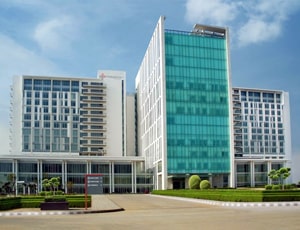
Types of Anterior Cruciate Ligament (ACL) Reconstruction in Medanta - The Medicity and its associated cost
| Treatment Option | Approximate Cost Range (USD) | Approximate Cost Range (INR) |
|---|---|---|
| ACL Reconstruction (Overall) | 3963 - 7460 | 323974 - 601191 |
| Autograft ACL Reconstruction | 2298 - 5057 | 182074 - 407661 |
| Allograft ACL Reconstruction | 2773 - 6687 | 234347 - 547019 |
| Arthroscopic ACL Reconstruction | 3320 - 7270 | 270857 - 592533 |
| Open ACL Reconstruction | 3997 - 6895 | 319449 - 559956 |
| Minimally Invasive ACL Reconstruction | 4543 - 7177 | 369960 - 591648 |
DOCTORS IN 14 SPECIALITIES
FACILITIES & AMENITIES
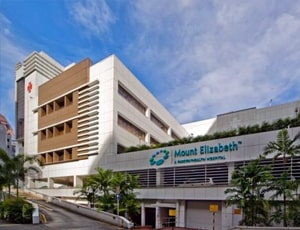
Mount Elizabeth Hospital located in Singapore, Singapore is accredited by JCI. Also listed below are some of the most prominent infrastructural details:
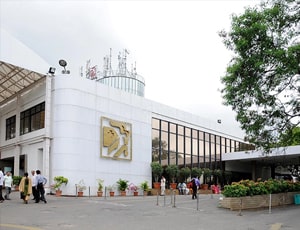
Types of Anterior Cruciate Ligament (ACL) Reconstruction in Apollo Hospitals and its associated cost
| Treatment Option | Approximate Cost Range (USD) | Approximate Cost Range (INR) |
|---|---|---|
| ACL Reconstruction (Overall) | 3894 - 7246 | 317417 - 611711 |
| Autograft ACL Reconstruction | 2204 - 5022 | 185195 - 410826 |
| Allograft ACL Reconstruction | 2854 - 6863 | 227965 - 560656 |
| Arthroscopic ACL Reconstruction | 3424 - 7208 | 282339 - 593294 |
| Open ACL Reconstruction | 3985 - 6825 | 323992 - 572491 |
| Minimally Invasive ACL Reconstruction | 4539 - 7362 | 372066 - 597462 |
DOCTORS IN 14 SPECIALITIES
FACILITIES & AMENITIES
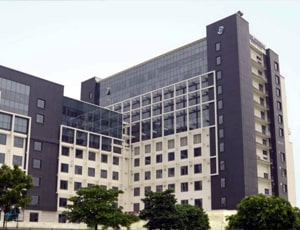
Types of Anterior Cruciate Ligament (ACL) Reconstruction in Venkateshwar Hospital and its associated cost
| Treatment Option | Approximate Cost Range (USD) | Approximate Cost Range (INR) |
|---|---|---|
| ACL Reconstruction (Overall) | 3549 - 6590 | 292707 - 542419 |
| Autograft ACL Reconstruction | 2023 - 4581 | 166426 - 375912 |
| Allograft ACL Reconstruction | 2546 - 6091 | 208881 - 499744 |
| Arthroscopic ACL Reconstruction | 3055 - 6628 | 250536 - 542000 |
| Open ACL Reconstruction | 3536 - 6320 | 292021 - 516115 |
| Minimally Invasive ACL Reconstruction | 4041 - 6579 | 331488 - 541276 |
DOCTORS IN 13 SPECIALITIES
FACILITIES & AMENITIES
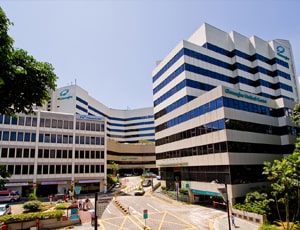
Gleneagles Hospital located in Napier Road, Singapore is accredited by JCI. Also listed below are some of the most prominent infrastructural details:
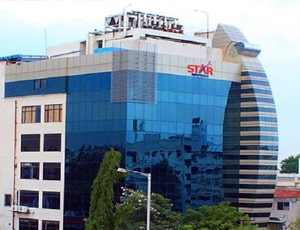
Types of Anterior Cruciate Ligament (ACL) Reconstruction in Star Hospitals and its associated cost
| Treatment Option | Approximate Cost Range (USD) | Approximate Cost Range (INR) |
|---|---|---|
| ACL Reconstruction (Overall) | 3292 - 6036 | 271252 - 504378 |
| Autograft ACL Reconstruction | 1862 - 4208 | 152181 - 342906 |
| Allograft ACL Reconstruction | 2361 - 5599 | 191469 - 466295 |
| Arthroscopic ACL Reconstruction | 2778 - 6054 | 229697 - 491687 |
| Open ACL Reconstruction | 3279 - 5819 | 270762 - 469583 |
| Minimally Invasive ACL Reconstruction | 3756 - 6145 | 302903 - 493192 |
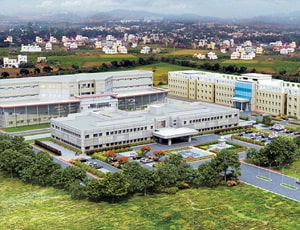
Types of Anterior Cruciate Ligament (ACL) Reconstruction in Global Health City and its associated cost
| Treatment Option | Approximate Cost Range (USD) | Approximate Cost Range (INR) |
|---|---|---|
| ACL Reconstruction (Overall) | 3902 - 7352 | 321920 - 593747 |
| Autograft ACL Reconstruction | 2251 - 5083 | 181986 - 422440 |
| Allograft ACL Reconstruction | 2868 - 6881 | 234782 - 542109 |
| Arthroscopic ACL Reconstruction | 3323 - 7339 | 275734 - 586944 |
| Open ACL Reconstruction | 3985 - 6908 | 327971 - 582141 |
| Minimally Invasive ACL Reconstruction | 4572 - 7440 | 376766 - 589176 |
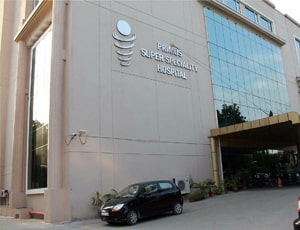
Types of Anterior Cruciate Ligament (ACL) Reconstruction in Primus Super Speciality Hospital and its associated cost
| Treatment Option | Approximate Cost Range (USD) | Approximate Cost Range (INR) |
|---|---|---|
| ACL Reconstruction (Overall) | 3547 - 6587 | 290930 - 540036 |
| Autograft ACL Reconstruction | 2026 - 4561 | 165709 - 375145 |
| Allograft ACL Reconstruction | 2534 - 6109 | 208167 - 498098 |
| Arthroscopic ACL Reconstruction | 3040 - 6585 | 248990 - 541530 |
| Open ACL Reconstruction | 3551 - 6293 | 292169 - 513983 |
| Minimally Invasive ACL Reconstruction | 4044 - 6584 | 334336 - 543142 |
Anterior cruciate ligament (ACL) reconstruction refers to the replacement of the damaged ACL with a tissue to facilitate normal functioning of the knee. ACL is a major stabilizing ligament in the knee, which connects the femur to the tibia. ACL helps provide proper movement of the tibia. ACL also facilitates pivoting or sudden change in the direction of the leg, preventing damage to the knee.
The ACL can be injured in different ways, thus warranting a need for ACL repair. The following scenarios may damage the ACL:
The ACL may not require surgery when the knee is stable when the ligament is not torn completely, or even when you don’t have to strain your knees by active sports. The alternate treatment in such a situation is “RICE” – Rest, Ice, Compression, and Elevation.
Physiotherapy, exercise, and braces for legs can help provide support to the knee. Exercises such as swimming, running in a straight line, and playing golf can be preferred by active individuals if they do not wish to return to an active sports life.
General anaesthesia or local anaesthesia will be given before ACL reconstruction surgery. The tissue to replace the damaged ACL will be taken from the kneecap or hamstring tendons of your body, or from a donor. The surgery is usually performed with the help of knee arthroscopy.
ACL repair involves the use of a camera inserted into the slit made in the knee. A computer connected to the camera facilitates viewing of the inner ligament, by which the physician can perform the surgery. Other incisions are made to incorporate the required equipment and then the ACL reconstruction surgery is performed.
You will be sent home on the same day of the surgery. You will be instructed to use knee braces or crutches after one to four weeks of the surgery. The physician prescribes pain medications if required. Physiotherapy could help retain the integrity of the knee faster.
Ask your healthcare adviser for the best multiple options and choose the one that meets your expectations
The average cost of Anterior Cruciate Ligament (ACL) Reconstruction in Israel starts from USD 12000 Many multispeciality hospitals in Israel that are JCI certified are approved and most sought after for treating international patients with Anterior Cruciate Ligament (ACL) Reconstruction
The cost of Anterior Cruciate Ligament (ACL) Reconstruction in Israel may differ from one medical facility to the other. The cost quoted by some of the best hospitals for Anterior Cruciate Ligament (ACL) Reconstruction in Israel generally covers the pre-surgery investigations of the patient. The Anterior Cruciate Ligament (ACL) Reconstruction procedure in Israel includes the fees of the surgeon, hospitalization and anesthesia as well. Extended hospital stay, complications after the surgery or new diagnosis may affect the overall cost of Anterior Cruciate Ligament (ACL) Reconstruction in Israel.
There are many hospitals across the country that offer Anterior Cruciate Ligament (ACL) Reconstruction to international patients. For quick reference, the following are some of the leading hospitals for Anterior Cruciate Ligament (ACL) Reconstruction in Israel:
Upon discharge from the hospital after Anterior Cruciate Ligament (ACL) Reconstruction in Israel, the patients are advised to stay for about 15 days for recovery. This period is important to conduct all the follow-up tests to ensure that the surgery was successful and the patient can go back to the home country.
Apart from the Anterior Cruciate Ligament (ACL) Reconstruction cost, the patient may have to pay for additional daily expenses such as for guest house after discharge and meals. The extra charges may start from USD 50 per person.
Some of the best cities in Israel which offer Anterior Cruciate Ligament (ACL) Reconstruction are:
After Anterior Cruciate Ligament (ACL) Reconstruction, the patient is supposed to stay for about 1 days in the hospital for recovery and monitoring. The doctors team review the patient's recovery during this time with the help of blood tests and imaging scans. Once they feel that everything is on track, the patient is discharged.
There are more than 6 hospitals that offer Anterior Cruciate Ligament (ACL) Reconstruction in Israel. These clinics have propoer infrastructure as well as offer good quality of services when it comes to Anterior Cruciate Ligament (ACL) Reconstruction Apart from good services, the hospitals are known to follow all standard and legal guidelines as dictated by the local medical affairs body or organization.
Some of the top doctors for Anterior Cruciate Ligament (ACL) Reconstruction in Israel are: